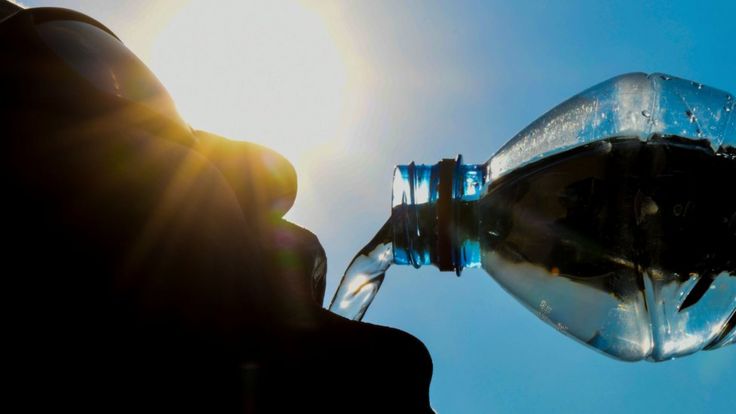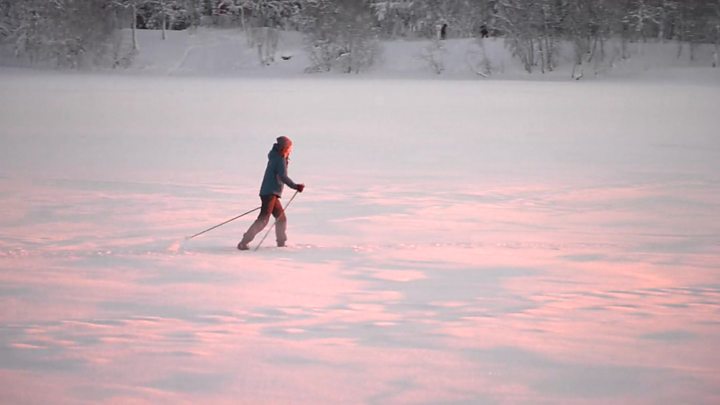Eggs in Indonesia have been found to contain dangerous concentrations of chemicals – and the poison comes from the world’s plastic waste
www.businessinsider.sg
 An adult eating just one of the contaminated eggs from Tropodo would exceed the the tolerable daily intake for chlorinated dioxins by 70-fold, the report said.Pixabay
An adult eating just one of the contaminated eggs from Tropodo would exceed the the tolerable daily intake for chlorinated dioxins by 70-fold, the report said.Pixabay
As the world comes to terms with the lasting detrimental effects decades of plastic use has had on the environment, fresh concerns of food chain contamination have now surfaced in South-east Asia.
Just this year, exposes revealed how the developed world’s plastic waste management had led to illegal dumping in South-east Asian nations such as Malaysia and Indonesia. Outraged, Malaysia’s government sent shiploads of plastic waste back to their originating countries.
But it may be too little too late.
The International Pollutants Elimination Network (IPEN), an environmental health and policy network, revealed on November 13that highly toxic chemicals have entered the region’s food chain via animal produce.
These chemicals – including dioxins, flame retardants and “forever chemical” perfluorooctane sulfonate (PFOS) – pose dire risks to human health, and were detected in dangerous concentrations in free-range chicken eggs in Indonesia, IPEN’s report said.
“Forever chemicals” cannot be degraded and, according to Food & Water Watch, will persist for long periods of time.
Dioxin concentration levels in these eggs were similar to those found in eggs collected in Vietnam’s Bien Hoa, home to one of the most dioxin-contaminated locations on earth, it added.
Unlike Bien Hoa, which got its dioxin contamination via Agent Orange used during the war, the Indonesian eggs were collected near an Indonesian tofu factory in East Java’s Tropodo that burns plastics for fuel.
The report titled “Plastic Waste Poisons Indonesia’s Food Chain” said the study specifically found dioxins, polychlorinated biphenyls (PCBs), polybrominated diphenyl ethers (PBDEs), short-chain chlorinated paraffins (SCCPs) and PFOS in the eggs.
An adult eating just one of the contaminated eggs from Tropodo would exceed the European Food Safety Authority (EFSA) tolerable daily intake (TDI) for chlorinated dioxins by 70-fold, the report said.
In another community, Bangun – where residents burn the piles of plastic waste to reduce the sheer volume of trash – eggs were found to contain PFOS at levels comparable to highly industrialized areas in Europe. Like the Tropodo eggs, Bangun’s eggs also contained SCCPs and PBDEs, which are toxic flame-retardant chemicals used in plastics.
Dangers to human health
Dioxin exposure is linked to a variety of serious illnesses in humans, including cardiovascular disease, cancer, diabetes, and endometriosis, IPEN said.
In addition, the flame retardant chemicals can disrupt endocrine function and negatively affect reproductive health. PFOS, in particular, causes reproductive and immune system damage.
Prigi Arisandi, director of Indonesian conservation group Ecoton, said communities that are being choked by plastic are being poisoned by it as well. “Plastic waste dumping needs to end everywhere. Otherwise we will see the same polluting nations find ways to dump their plastic waste on poor communities in other countries,” he said.
Plastic scrap concealed in paper recycling
According to IPEN, Plastic scrap is entering Indonesia through recycling imports, including paper scrap shipments. In the last three years, the amount of plastic scrap concealed inside paper recycling bundles imported into Indonesia skyrocketed from 2 per cent to up to 70 per cent, IPEN said.
These shipments are imported primarily from Australia, Canada, Ireland, Italy, New Zealand, UK, and the US, it added.
According to IPEN, free-range chickens ingest some soil while picking food from the ground, making them “active samplers” for chemicals present in the soil. The chemicals collect in eggs, which have significant lipid content, as most toxic chemicals known as persistent organic pollutants (POPs) dissolve in fat.
“It’s clear from the study that plastic pollution imperils human and environmental health not only from the visible deluge of plastic trash, but from the invisible chemical contaminants in plastics and those created when burning plastics,” report co-author Lee Bell said.
@Froggy
www.businessinsider.sg

As the world comes to terms with the lasting detrimental effects decades of plastic use has had on the environment, fresh concerns of food chain contamination have now surfaced in South-east Asia.
Just this year, exposes revealed how the developed world’s plastic waste management had led to illegal dumping in South-east Asian nations such as Malaysia and Indonesia. Outraged, Malaysia’s government sent shiploads of plastic waste back to their originating countries.
But it may be too little too late.
The International Pollutants Elimination Network (IPEN), an environmental health and policy network, revealed on November 13that highly toxic chemicals have entered the region’s food chain via animal produce.
These chemicals – including dioxins, flame retardants and “forever chemical” perfluorooctane sulfonate (PFOS) – pose dire risks to human health, and were detected in dangerous concentrations in free-range chicken eggs in Indonesia, IPEN’s report said.
“Forever chemicals” cannot be degraded and, according to Food & Water Watch, will persist for long periods of time.
Dioxin concentration levels in these eggs were similar to those found in eggs collected in Vietnam’s Bien Hoa, home to one of the most dioxin-contaminated locations on earth, it added.
Unlike Bien Hoa, which got its dioxin contamination via Agent Orange used during the war, the Indonesian eggs were collected near an Indonesian tofu factory in East Java’s Tropodo that burns plastics for fuel.
The report titled “Plastic Waste Poisons Indonesia’s Food Chain” said the study specifically found dioxins, polychlorinated biphenyls (PCBs), polybrominated diphenyl ethers (PBDEs), short-chain chlorinated paraffins (SCCPs) and PFOS in the eggs.
An adult eating just one of the contaminated eggs from Tropodo would exceed the European Food Safety Authority (EFSA) tolerable daily intake (TDI) for chlorinated dioxins by 70-fold, the report said.
In another community, Bangun – where residents burn the piles of plastic waste to reduce the sheer volume of trash – eggs were found to contain PFOS at levels comparable to highly industrialized areas in Europe. Like the Tropodo eggs, Bangun’s eggs also contained SCCPs and PBDEs, which are toxic flame-retardant chemicals used in plastics.
Dangers to human health
Dioxin exposure is linked to a variety of serious illnesses in humans, including cardiovascular disease, cancer, diabetes, and endometriosis, IPEN said.
In addition, the flame retardant chemicals can disrupt endocrine function and negatively affect reproductive health. PFOS, in particular, causes reproductive and immune system damage.
Prigi Arisandi, director of Indonesian conservation group Ecoton, said communities that are being choked by plastic are being poisoned by it as well. “Plastic waste dumping needs to end everywhere. Otherwise we will see the same polluting nations find ways to dump their plastic waste on poor communities in other countries,” he said.
Plastic scrap concealed in paper recycling
According to IPEN, Plastic scrap is entering Indonesia through recycling imports, including paper scrap shipments. In the last three years, the amount of plastic scrap concealed inside paper recycling bundles imported into Indonesia skyrocketed from 2 per cent to up to 70 per cent, IPEN said.
These shipments are imported primarily from Australia, Canada, Ireland, Italy, New Zealand, UK, and the US, it added.
According to IPEN, free-range chickens ingest some soil while picking food from the ground, making them “active samplers” for chemicals present in the soil. The chemicals collect in eggs, which have significant lipid content, as most toxic chemicals known as persistent organic pollutants (POPs) dissolve in fat.
“It’s clear from the study that plastic pollution imperils human and environmental health not only from the visible deluge of plastic trash, but from the invisible chemical contaminants in plastics and those created when burning plastics,” report co-author Lee Bell said.
@Froggy





